Doktoratskolleg (DK)
Catholic Theology in a Globalised World
Zielsetzung und Umfang
Das Doktoratskolleg Catholic Theology in a Globalised World (DKTh) stellt maßgebliche Entwicklungen in Kirche und Weltgesellschaft ins Zentrum seiner Aufmerksamkeit, um zu einer Theologie beizutragen, die einer Kirche - die in vielen Herausforderungen und Konflikten steht -, dazu verhelfen möchte, ihre globale Verantwortung angemessener nach innen und nach außen wahrzunehmen.
Als ältester und größter globaler Player wohl nicht nur der europäischen Geschichte kann die Katholische Kirche für eine Weltgesellschaft, die in einem ebenso radikalen Wandel wie in einer tiefen Krise steckt, einen hilfreichen und nachhaltigen Beitrag leisten. Die traditionell hohe Internationalität der Doktorand*innen an der Innsbrucker Theologischen Fakultät legt eine solche Orientierung nahe.
Neben dem Jesuitenkolleg ist vor allem das Canisianum zu nennen, in dem die Studierenden auch spirituell begleitet werden. In Kontinuität zu dieser Tradition möchte das DKTh auch dazu beitragen, den Anteil an qualifizierten Frauen aus aller Welt in Kirche und Gesellschaft zu erhöhen. Diese Internationalität birgt vielfältige Erfahrungshintergründe aus sehr unterschiedlichen sozialen Schichten mit ihren Konflikten und Chancen aus potentiell allen Kulturen.
Diese Diversität und Pluralität der Studierenden repräsentieren die Situation der Katholischen Kirche nach dem Zweiten Vatikanischen Konzil. Diese Kirche ist nach Karl Rahner in eine neue Epoche ihrer Geschichte eingetreten, in der sie Weltkirche werden soll, d.h. sie soll eine Glaubensgemeinschaft werden, die sich in vielen Kulturen und Kontexten wirklich inkulturiert und ihre "Katholizität" ökumenisch und interreligiös lebt.
In dieser Diversität und Pluralität wird sie nachdrücklich danach befragt, wie sie innere Einheit in ausdrücklicher Vielfalt und solidarische Gemeinschaft mit allen Menschen tatsächlich lebt (LG 1; GS 1). In dieser Spannung ist das DKTh angesiedelt und wird die sich daraus ergebenden Fragen, Probleme und Konflikte aufgreifen, um zu einem Laboratorium für eine "Welt-Theologie" der Zukunft zu werden.
Sämtliche Informationen zu Zielgruppe, Bewerbungsprozess und Aufnahmebedingungen finden Sie in den Statuten.
Bitte beachten Sie für Ihre Bewerbung besonders:
- (3) Admission and Affiliation of DKTH-Doctoral Students
- (4) Doctoral Thesis
- (5) Curricular Activities
Forschungsprojekt
NO LONGER TWO BUT ONE: Theological Foundations and Pastoral Implications of Harmonising Church and Igbo Traditional Marriages
Über das Projekt
Die Worte Jesu in Lukas 4:18-19 zeigen, dass das Wohlergehen der Menschen und die soziale Entwicklung integrale Bestandteile seiner göttlichen Sendung sind. Christliche Theologie zielt sowohl auf das zeitliche als auch auf das geistliche Wohlergehen der menschlichen Person ab. Mit dem Wachstum des Christentums in Afrika erwartet man eine entsprechende Entwicklung des Kontinents. Afrikanische Christen sind jedoch besorgt, dass das Christentum nicht die erwarteten Früchte trägt.
In vielen traditionellen afrikanischen Gesellschaften führte das Aufkommen des missionarischen Christentums zum Zusammenbruch traditioneller Lebensweisen. Traditionelle Kulturen wurden entweder dämonisiert oder aufgegeben. Diese ablehnende Haltung gegenüber afrikanischen Kulturen besteht in unterschiedlichen Ausprägungen fort. Heute wird der „Same des Glaubens“ nicht tief auf fruchtbaren Böden, in den Menschen vertrauten Lebensweisen und im Einklang mit dem Evangelium gesät.
Dies ist der Fall bei der traditionellen Ehe in Igbo (Nigeria) Kultur. Einerseits gilt die traditionelle Igbo-Ehe nicht als Sakrament. Folglich müssen christliche Paare in der Kirche heiraten. Andererseits ist die kirchliche Ehe in der Igbo-Kultur unzureichend. Paare müssen die traditionelle Hochzeit des Igbo feiern, sogar vor der kirchlichen Trauung. Offensichtlich verursachen die beiden Ehen Belastungen, Spannungen und Verwirrungen in Familie, Kirche und Gesellschaft. Daher ist es notwendig, das Sakrament der Ehe für Igbo-Christen zu überdenken. Diese Studie schlägt die Harmonisierung der beiden Ehen zu einer vor. Dies würde nicht nur die Belastung durch Doppelehen verringern, sondern auch den Glauben, die Familie und die Gesellschaft insgesamt stärken. Dieses Paradigma kann auch in anderen afrikanischen Ländern und Kulturen mit ähnlicher Herausforderung der Integration von Glauben, Kultur und Entwicklung angewendet werden.
Unter Verwendung relevanter theologischer Ressourcen und Erkenntnisse aus anderen Disziplinen wendet die Studie die „See-Judge-Act“ (Sehen-Bewerten-Handeln) an.
Über mich
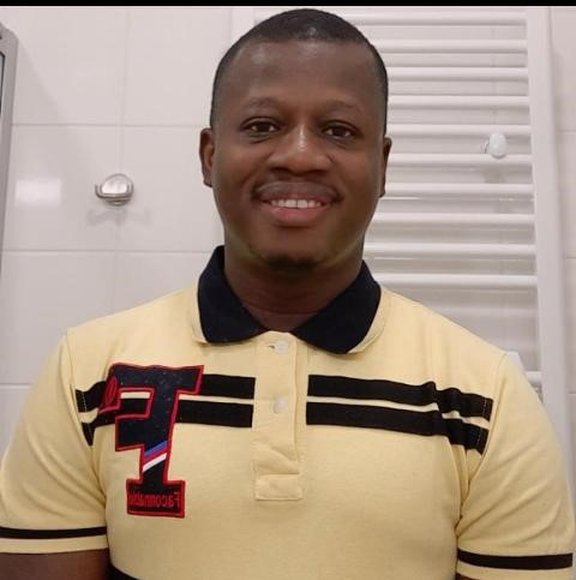
Mein Name ist Emmanuel Onyinye Aneto. Ich wurde 1984 geboren. Ich komme aus Nigeria. Ich habe einen Bachelor in Philosophie und in Theologie am Bigard Memorial Enugu, Nigeria. 2014 wurde ich für die katholische Diözese Aba, Nigeria, zum Priester geweiht. Seit meiner Priesterweihe im Jahr 2014 bis April 2017 arbeitet ich als Kaplan, Schullehrer, Koordinator der Päpstlichen Missionsunion und Leiter der Kurie in meiner Diözese. Ich habe im Jahr 2020 einen Masterabschluss in Pastoraltheologie an der renommierten Universität Innsbruck und promoviere derzeit im selben Bereich an derselben Universität.
BIODATA
- Name: Emmanuel Onyinye Aneto
- Geburtsdatum: 02.02.1984
- Staatsangehörigkeit: Nigeria
- Diözese: Aba
BILDUNG/AUSBILDUNG
- Kindergarten: St. Imelda Nursery and Primary School, Ihiala, Anambra State, Nigeria (1988-1991)
- Grundschule:
- Central School, Imo River, Abia State, Nigeria (1991-1993) and
- Daughters of Mary, Mother of Mercy, Nursery and Primary School, Oyigbo, Rivers State, Nigeria. (1993-1997)
- Zertifikat: First School Leaving Certificate (FSLC)
- Hauptschule (Knabenseminar):
- Annunciation Seminary Amaudara, Abia State, Nigeria (1997- 2003).
- Zertifikat: Senior School Certificate Examination (SSCE)
- Propaedeutic: St. Mary Propadeutic Seminary, Azumini Ndoki, Abia State Nigeria (2004-2005).
- Priesterseminar:
- Bigard Memorial Seminary, Enugu State, Nigeria; affiliate of Pontifical Urban University, Rome (2005-2009).
- Zertifikat: Bachelor in Philosophy (B.PHIL).
- Bigard Memorial Seminary, Enugu State, Nigeria; affiliate of Pontifical Urban University, Rome (2009-2013).
- Zertifikat: Bachelor in Theology (B.TH)
- Bigard Memorial Seminary, Enugu State, Nigeria; affiliate of Pontifical Urban University, Rome (2005-2009).
- Ausbildung: Krankenhause Seelsorger (2020), Aushilfspriester, Krankenhausseelsorge, Innsbruck Klinikum, Österreich
- Weiterstudium:
- Universität Innsbruck, Österreich (2018-2020).
- Zertifikat: Mag. Pastoral Theologie.
- Universität Innsbruck, Österreich (2018-2020).
- Promotion: Universität Innsbruck, Österreich (2020 bis voraussichtlich 2023)
Thema
Konflikte und Eroberungen: Israels Herausforderungen in Numeri 20 und 21
About the project
In Numeri 20 und 21 wird der Auszug der Söhne Israels aus der Wüste geschildert. Die Wanderung ist geprägt von besonderen Konflikten, in die verschiedene Personen verwickelt sind, von denen jedoch eine besonders hervorsticht - Jhwh.
Jhwh verkörpert den Geist und das Bewusstsein von Israel als Nation. Israel findet seine Identität in ihm, Israel schreitet mit ihm voran, und nur durch ihn gedeiht Israel.
Die Schwierigkeiten in der Wüste dienen dazu, dieses Bewusstsein durch innere und äußere Konflikte zu schulen. So zeigen die endgültigen Ereignisse zwischen Kadesch in Zin und Moab, dass Israel sich nicht einmal um Mose, sondern um Jhwh zusammenschließen muss.
Das Projekt wird sich bemühen, Num 20 und 21 synchron zu analysieren, um die Botschaft hinter dem Text zu erfassen, die ich dann in jedem sozialen, religiösen und kulturellen Milieu anwenden kann.
About me
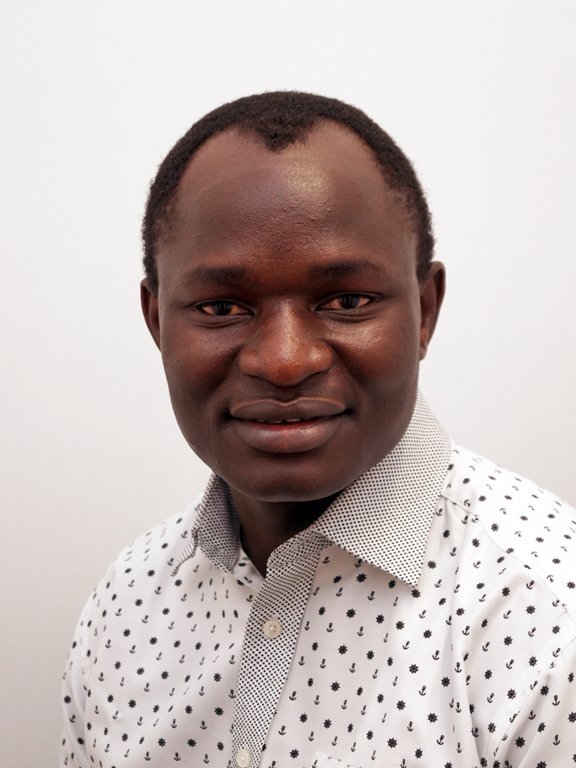
Ich bin Priester in der Katholischen Diözese von Nakuru, Kenia. Ich bin in einer polygamen Familie aufgewachsen, wobei meine Mutter vier von sechsunddreißig Kindern hatte.
Ich gehöre zum Stamm der Luo und spreche Dholuo, aber ich kann mich auch fließend in Kisuaheli, Englisch und Deutsch verständigen. Außerdem verstehe ich Hebräisch und Griechisch.
Ich habe in Kenia die Grund- und Sekundarschule sowie die Priesterausbildung bekommen.
Ich habe einen Bachelor-Abschluss in Philosophie und Theologie von der Urbaniana Universität Rom und einen Master-Abschluss von der Leopold-Franzens-Universität Innsbruck. Ich interessiere mich für die Bibel, lokale und geopolitische Themen und interkulturelle Theologie.
Research Project
The Threat of Hindutva to Religious Freedom in India: A Christian Response
About the project
India is the world’s largest democratic and secular country. It is multi-cultural and multi-religious. Its identity is pluralism and secularism. The Constitution of the Republic of India in Article 25 (1) guarantees religious freedom as one of the fundamental rights of every citizen of India. It has also protections for minority rights against discrimination on the grounds of religion and caste. But after the Bhartiya Janata Party (BJP; Indian Peoples’ Party), a national political party’s consecutive victory in the 2014 and 2019 national elections, the right to religious freedom/ belief has come under threat because of its ideological stance with right-wing Hindu extremists such as Rashtriya Swayamsevak Sangh (RSS; National Volunteer Organization) who carries and propagate the ideology of Hindutva (Hindu-ness/ Hinduisation). According to the concept of Hindutva, everyone who lives in India is none other than a Hindu, and India belongs to Hindus only. It looks at Christianity and Islam as a ‘foreign’, a threat to their political power, ‘traditional’ society, and the ‘indigenous’ religion (Hinduism). However, its primary agenda is to change secular India into ‘Hindu Rashtra (Hindu nation), which is antithetical to democratic and secular India, dreamed by forefathers of the nation such as Mahatma Gandhi, Dr. B. R Ambedkar, Jawahar Lal Nehru, and Maulana Azad. It focuses on the official teaching of the Church on religious freedom in its dogma Dignitatis Humanae in the light of the religious context of India.
About me
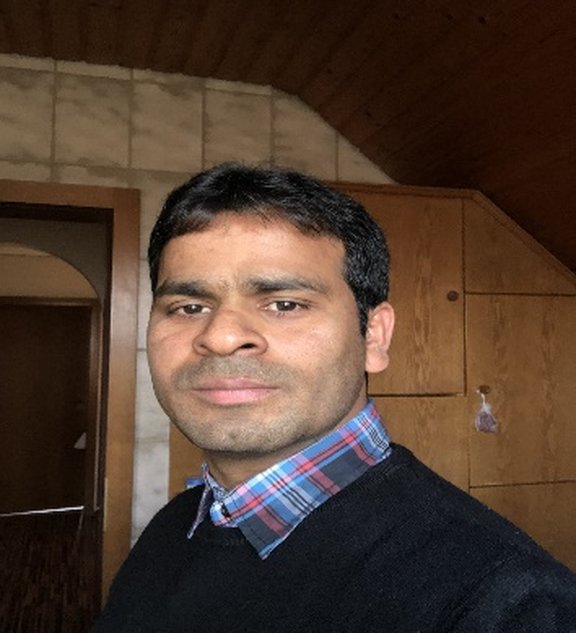
Name: Subbaiah Chapala
Nationality: Indian
Designation: Roman Catholic Priest
Academic Education
- B.A. Philosophy
Andhra University, Visakhapatnam, Andhra Pradesh, India. - Bachelor of Theology (B. Th.)
St. John’s Regional Seminary, Hyderabad, A.P., India. - Master of Arts (M.A. Lit.)
Andhra University, A.P., India. - Master of Theology (M. Th.)
The Catholic University of Innsbruck, Austria.
Dissertation Project
The Threat of Hindutva to Religious Freedom in India: A Christian Response
Dissertation Guide
Univ.-Prof. Dr. Wilhelm Guggenberger
Über das Projekt
The Project explores the evolving concept of salvation on the move, addressing both the salvation of people on the move and the broader theological journey from the “already” to the “not yet”. Central to this exploration is Rene Girard’s mimetic theory; by analyzing its key elements - mimesis, desire, metaphysical transcendence, mimetic crisis, and scapegoat mechanism, the project tries to illuminate how internal migrants in India are scapegoated during social conflicts. By engaging with Girard’s Judaeo-Christian anti-mimetic perspective, the study intends to reveal how Jesus’s sacrifice exposes and disrupts the cycle of scapegoating, offering a path toward reconciliation.
In the realm of migration, Raymund Schwager’s dramatic theology promises to offer a valuable framework for understanding the hypothesis of salvation on the move. Schwager’s work, will help the project articulate how salvation continuously unfolds in human history, therefore also especially among people displaced. It emphasizes God’s active engagement with them, offering salvation through Jesus Christ. Finally, the project highlights the agency of the migrants in their salvation and calls for transformative engagement with host societies. By challenging sinful structures and embracing Christ’s model of non-violent reconciliation, migrants and hosts alike can foster inclusion and redemption dismantling the cycle of scapegoating.
Über mich
Sebastian Crossian, born on 28 April 1981, is a Jesuit from Chennai Province, India. He obtained his master’s degree in chemistry from Madras University (2005-2007), Bachelor of Philosophy from Jnana-Deepa, Pune (2007-2009), his Master of Theology from Vidyajyoti, Delhi (2019-2022). Since 2023, he is pursuing a Doctorate in Dogmatic Theology at the University of Innsbruck. His socio-pastoral involvement with the Dalits, Tribals, Migrants and Nomadic in India contextualizes his theological learning.
Forschungsprojekt: Emphasizing Human Dignity Through the Eucharist
über das Projekt:
Ein Hauptaugenmerk der Forschung liegt auf der Beziehung zwischen der Eucharistie, einem grundlegenden christlichen Sakrament, und der Idee der Menschenwürde. Ziel der Forschung ist es, zu ermitteln, wie die Eucharistie mit ihren spirituellen, sozialen und ethischen Aspekten in die Vorstellung passt, dass jeder Mensch wertvoll ist und Respekt sowie gleiche Würde verdient. Es wird untersucht, wie im Rahmen des christlichen Glaubens und der Praxis die Eucharistie die Menschenwürde einfordert und bekräftigt.
Die Studie wird sich auf drei wichtige Dokumente des Zweiten Vatikanischen Konzils konzentrieren: Dignitatis Humanae, Lumen Gentium und Gaudium et Spes. Diese Dokumente sind von entscheidender Bedeutung aufgrund ihrer Lehren über viele Aspekte der Menschenwürde und der Lehre der Kirche über die Sakramente innerhalb der katholischen Tradition.
Als Vertreter der katholischen Kirche spricht Papst Franziskus durch seine Lehren und Perspektiven für die Kirche, und durch seine humanitären Aktionen hat er die Vision des Zweiten Vatikanischen Konzils, die die Würde jedes Menschen betont, gelebt. Papst Franziskus ist bekannt für seine Betonung der sozialen Gerechtigkeit, sein Engagement für die Benachteiligten und seine einzigartige Art, die katholische Lehre zu verstehen und umzusetzen.
Mit Blick auf den indischen Kontext zielt die Studie darauf ab, zu untersuchen, wie diese katholischen Überzeugungen und Standpunkte mit dem besonderen sozialen, kulturellen und theologischen Umfeld Indiens interagieren.
Die Studie wird die Beziehung zwischen Menschenwürde und Eucharistie in den Dokumenten Lumen Gentium, Gaudium et Spes und Dignitatis Humanae erforschen, wobei sie sich auf wichtige Schriften von Papst Franziskus stützt und dabei den Fokus darauf legt, wie diese Ideen im indischen Kontext relevant sind.
Betreuer: Univ.-Prof. i. R. Dr. Roman Anton Siebenrock - Institut für Systematische Theologie und Univ.-Prof. Dr. Stefan Hofmann SJ Institut für Systematische Theologie.

über mich:
Mein Name ist Linus Dabre und ich komme aus Vasai, Indien. Im Jahr 2005 trat ich in das Priesterseminar in Poona ein. Zuvor hatte ich 2009 meinen Bachelor in Handelswissenschaften an der Universität Poona abgeschlossen. Von 2009 bis 2011 studierte ich Philosophie im St. Pius-Seminar in Mumbai und arbeitete danach ein Jahr im diözesanen Jugendzentrum. Zwischen 2012 und 2015 schloss ich mein Theologiestudium am Jnana Deepa in Poona ab und wurde am 31. Oktober 2015 zum Priester geweiht. Nach meiner Weihe war ich in drei verschiedenen Pfarreien tätig und erwarb mein Lizenziat in dogmatischer Theologie an der Jnana Deepa, wo ich auch zu unterrichten begann. Von 2021 bis 2023 lehrte ich Theologische Anthropologie in Jnana Deepa. Derzeit bin ich in Innsbruck, um mein Doktorat in Dogmatischer Theologie abzuschließen.
Über das Projekt
Joh 13,1-30 berichtet von einer Episode, in der Jesus beim letzten Abendmahl vor seiner Passion und seinem Tod seinen Jüngern die Füße wäscht. Diese Handlung Jesu, der sich erniedrigt, um seinen Jüngern zu dienen, im Gegensatz zu seiner Identität als „Meister und Herr“, ist ein echtes Beispiel der Auffassung von Macht und Autorität im Johannesevangelium.
Darüber hinaus zeigt die Tatsache, dass Johannes der einzige Evangelist ist, der von einem solchen Ereignis beim letzten Abendmahl Jesu mit seinen Jüngern berichtet, dass es sich um eine „Relecture“ und „Neuinszenierung“ des letzten Abendmahls handeln würde.
Mein Forschungsprojekt wird sich bemühen, Joh 13,1-30 synchron zu analysieren, um das johanneische Konzept von Macht und Autorität hinter dieser „Relecture“ und „Neuinszenierung“ durch diesen Text zu erfassen, der in jedem sozialen, religiösen und kulturellen Umfeld angewendet werden könnte.
Über mich
Damin Jean-Marc ist ein Diözesanpriester aus der Elfenbeinküste. Er lebt seit 2022 in Canisianum (Internationales Theologisches Kolleg, Innsbruck). Seit 2024 promoviert er im Fach Neues Testament und schreibt seine Dissertation unter der Betreuung von Professor Boris Repschinski SJ.
2012-2014: Bachelor in Philosophie
- Katholische Universität von Westafrika (Priesterseminar St Peter von Daloa, Elfenbeinküste)
2015-2019: Bachelor in Theologie
- Katholische Universität von Westafrika (Priesterseminar Notre Dame von Gagnoa, Elfenbeinküste)
2022-2023: Magisterarbeit (Bibelwissenschaft, Universität Innsbruck)
Seit 2024: Doktoratsstudium in Bibelwissenschaft (Universität Innsbruck)
Forschungsprojekt
“God-Human Relationship presented in Ps 22”. An Exegetical and Theological Study of Ps 22
Über das Projekt
In den letzten Jahren ist die gesamte Welt zunächst aufgrund der Covid-Pandemie und rezent mit der Angst vor einem gefährlichen Krieg samt dessen kaum einschätzbaren globalen Folgen in eine Situation geraten, in der die menschliche Kraft und Gestaltungsmacht für die meisten begrenzt erscheint. Aber selbst jenseits solcher katastrophaler Ereignisse stoßen Menschen in ihrem Leben immer wieder auf Situationen, in denen sie absolute Ohnmacht verspüren. Ereignisse wie unheilbare Krankheiten, natürliche, aber auch vom Menschen selbst verursachte Katastrophen (Stichwort „Klimawandel“), schwelende Konflikte zwischen Völkern und Regionen, unvorhersehbare, plötzliche und verfrühte Todesfälle usw. bringen uns Menschen in unvermeidliche hilflose Situationen. Unter solchen Umständen greifen gläubige Menschen vermehrt auf ihre Spiritualität zurück, sie schreien gleichsam im Gebet um Hilfe zu Gott. Einen solchen Schrei aus tiefer Verzweiflung präsentiert der alttestamentliche Ps 22. Dabei werden auch Anklagen, Zweifel und sogar ablehnende Anschuldigungen an Gott gerichtet.
Meine These dazu lautet: “Hinter dem Ausdruck der Ablehnung liegt auch ein Rest des Vertrauens auf die Liebe Gottes, die aus der Gott-Mensch Beziehung hervorgeht”. Die Kämpfe und Schmerzen des menschlichen Lebens verursachen die Gefühle der Ablehnung von und Distanz zu Gott. Gleichzeitig offenbart die Fähigkeit, dasselbe auszudrücken, die tiefe Gott-Mensch-Beziehung eines grundsätzlich Gläubigen. Allein die Tatsache, dass der Psalmist seine Enttäuschung zum Ausdruck bringen kann, ist ein Beweis dafür, dass er an die Liebe seines “mein Gott–Eli” trotzdem noch glaubt.
In dieser Studie möchte ich versuchen, ein kontextbezogenes und persönliches Verständnis der Gott-Mensch-Beziehung heraus zu arbeiten, die speziell in Psalm 22 offenbart wird. So möchte ich mit meiner Arbeit einen wissenschaftlichen Beitrag zum Verständnis der Psalmen für den Kontext der jeweiligen Zeiten leisten und den Psalter als orts- und zeitlosen Gebetsschatz (auch) für Krisensituationen verschiedenster Art aktualisieren.
Dissertations Betreuer: Univ.-Prof. Dr. Andreas Vonach
Über mich
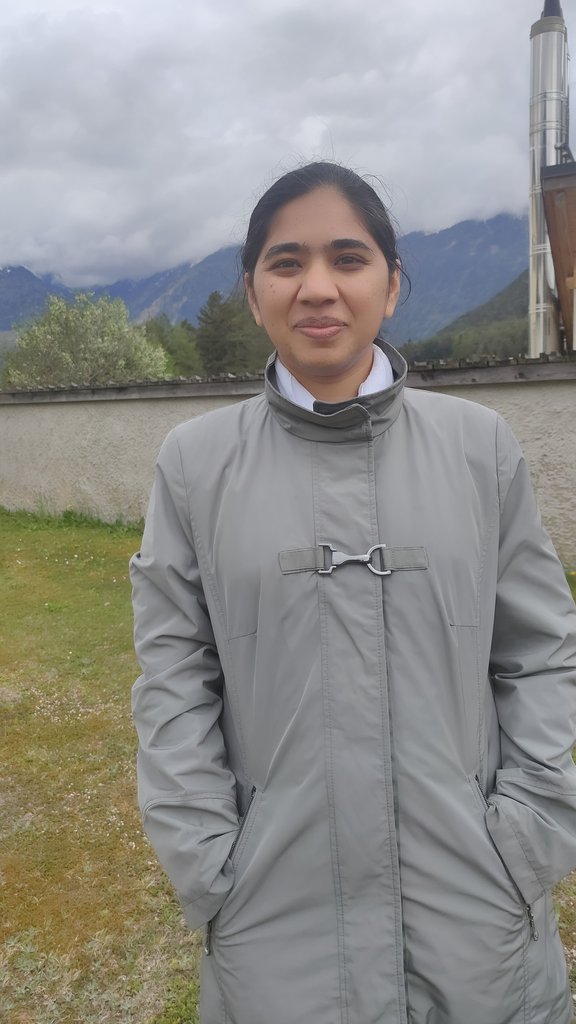
Mein Name ist Snehal Marcus D'Souza. Ich komme aus Indien. Ich bin Ordensfrau und gehöre einer indischen Ordensgemeinschaft "Sisters of Our Lady of Fatima" an.
Ausbildung:
- June 2009- March 2012 – Bachelor of Commerce – University of Pune.
- June 2012- March 2013 – Certificate Course in Philosophy – Mater Dei Institute, Goa.
- June 2013 – June 2016 – Bachelor of Theology – Jnana-deepa Institute, Pune.
- June 2018- March 2020 – Master of Theology – Jnana-deepa Institute, Pune.
Forschungsprojekt:
Gebet und Gottesbild
Über das Projekt
Erstbetreuer: Univ.-Prof. Dr. Roman Anton Siebenrock
Das Gebet ist im Christentum die zentrale religiöse Handlung. Es ist für das individuelle Glaubensleben von Christ*innen von essentieller Bedeutung, aber auch für das gemeinschaftliche Leben (dies meint auch, aber nicht ausschließlich, Kultus und Liturgie) unentbehrlich: Es gibt im Christentum, über alle konfessionellen Unterschiede hinweg, keinen Gottesdienst ohne Gebet.
Jedes Gebet wiederum steht untrennbar mit dem Gottesbild der betenden Person in Zusammenhang. Ich arbeite in meiner Dissertation besonders die Wechselwirkungen von Gebet und Gottesbild heraus: Was bedeutet das christliche Gottesbild für die Gebetspraxis von Christ*innen? Und welche Implikationen hat das Gebet für das christliche Gottesbild?
Über mich
Mag. theol. Marisa Hanna Gasteiger ist gebürtige Tirolerin und studierte Katholische Fachtheologie an der Universität Innsbruck. Im Anschluss an ihr Diplomstudium, das sie mit der Diplomarbeit „Kann eine christliche Person, die Gott im Bittgebet um etwas bittet, vernünftig sein?“ unter der Betreuung von Prof. Dr. Bruno Niederbacher SJ abschloss, begann sie ihr Doktoratsstudium. Sie arbeitet an ihrer Dissertation im Fach Fundamentaltheologie zum Thema „Gebet und Gottesbild” unter der Betreuung von Prof. Dr. Roman Anton Siebenrock.
Forschungsprojekt
Called and Commissioned: An Exegetical-Theological Study of John 20:1-18
Über das Projekt
This doctoral study uses narrative criticism to establish John 20:1-18 as one of the theological and narrative high points of the fourth Gospel. The text examines Mary Magdalene’s encounter with the risen Jesus, set against the backdrop of seeking, recognition, and sending, and uses this to illustrate Johannine discipleship. In doing so, it charts her transition from a grief-stricken seeker to a commissioned witness. A close analysis of characterisation, dialogue, structure and intertextual echoes reveals that her story is situated alongside, yet ultimately surpasses, the transformative encounters of the text (John 20:1-18). This establishes her as the narrative bridge between the resurrection and the nascent community of faith. Consequently, Mary Magdalene emerges not merely as a mourner, but as the ‘apostle to the apostles,’ inaugurating the Church’s proclamation of the resurrection. The Gospel of John, through its literary design and emphasis on characters, portrays an ecclesiology rooted in divine initiative, resurrection faith, and the inclusive, egalitarian nature of female testimony.
This challenges traditional hierarchical paradigms in favour of a mission-oriented community. The selection of John 20:1-18 as the focus of this study stems from its crucial narrative function within the Gospel of John. At this pivotal moment, Mary Magdalene takes centre stage in the climactic resurrection scene, playing a key role in the narrative. Her encounter with the risen Jesus forms part of a carefully constructed literary structure that highlights her transformation from confusion and grief to recognition and empowerment. Mary Magdalene is not merely a passive recipient, but an active agent and bearer of the good news within the narrative, as the first person to witness and respond to the risen Christ. This passage is the culmination of a Johannine motif in which personal encounters with Jesus lead to transformation and mission. The literary dynamics of the text (including dialogue, repetition, misrecognition and naming) encourage the reader to see Mary Magdalene not only as a real person in history, but also as a narrative archetype of faithful witness. The usual constraints on gendered authority are transcended by her commissioning, creating an opportunity for new ways of thinking about women’s roles in proclaiming the resurrection within the Church.
Über mich
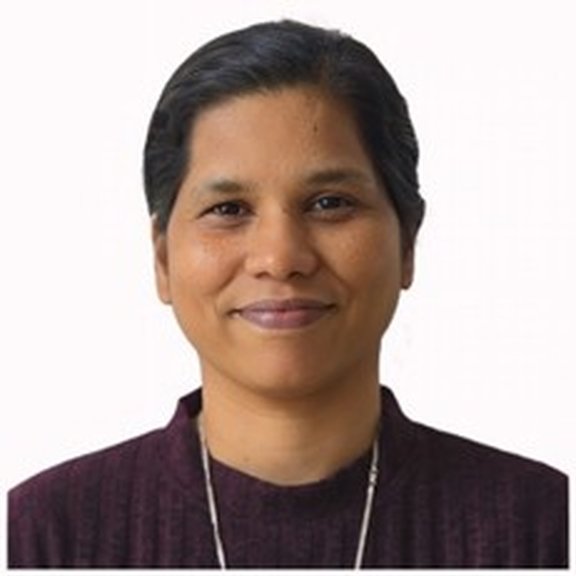
I am Sr. Arul Rosy Rabella George, a member of the Sisters of Charity of St. Anne, originally from Tamil Nadu, India. I hold advanced degrees in Mathematics, Education, Philosophy, Theology, and Biblical Studies. I previously served as a Mathematics teacher and have been nationally recognised for my academic and theological writings, reflecting a deep commitment to education, biblical scholarship, and spiritual formation. I am currently pursuing my Doctorate in New Testament Studies at the University of Innsbruck, Austria, with a specialisation in the Gospel of John. My passion is to proclaim and teach the Word of God, integrating rigorous scholarship with spiritual depth.
Forschungsprojekt
“Conscience, Civil Law, and Violence in a Pluralistic Society: The Nigerian Experience"
Über das Projekt
My ‘dream’ of a peaceful and prosperous Nigeria where citizens can pursue their aspirations and fulfill their hopes unhindered; a Nigeria where the common good shall be the heritage of all regardless of ethnic or religious affiliations has been darkened by decades of military dictatorship (ca. 1966–1998), abysmal violation of human rights, endemic corruption, poverty, and ethno-religious violence. The desire and determination to make things work properly in Nigeria, in spite of the above challenges, gave birth to this project. The project shall try to answer the following questions:
1. What is the relationship between conscience and civil law?
2. How can people whose consciences have been formed by religious doctrines or natural law abide by civil law in a pluralistic society?
3. What role do conscience and civil law play in mitigating violence in a pluralistic society?
The objectives of the project include:
1. To look at conscience, its formation and types.
2. To enumerate some legal rights and duties of citizens and how they should exercise them in relation to conscience and civil law.
3. To analyze some types of violence common in Nigeria and how they relate to conscience, religion, and politics.
4. To recommend education, secularization and democracy as foundation for sustainable development in a pluralistic society.
The project shall be descriptive and analytical. Data collection will be library research and participant observation where necessary. I will hopefully use the principle of SEE, JUDGE, and ACT.
Über mich
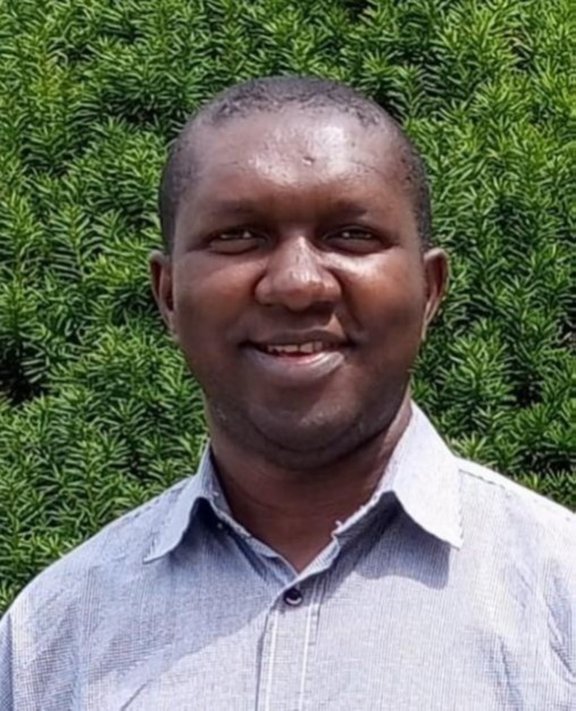
I am a Nigerian, born on 20th April 1981, and ordained a Catholic Priest on 26th June 2009 for the diocese of Kontagora in North-Central Nigeria. I hold two Bachelor’s Degrees, in Philosophy (B.Phil.) and Sacred Theology (BST), a Diploma in Civil Law, and a Master’s Degree in Catholic Theology. Currently, I am busy with my doctorate in Moral Theology in Innsbruck University under the guidance of Professors Stefan Hofmann SJ, and Wilhelm Guggenberger. I like reading, and listening to Reggae and Country music.
Dissertation Project
Sacred Monster of Grace: Réginald Garrigou-Lagrange on the Nature–Grace Relationship as the Matrix of the Whole Sacred Theology
About the Project
One of the key intra-Catholic debates of the 1940s and 1950s centered on the nature–grace relationship. Neo-Scholastic theologians, such as Réginald Garrigou-Lagrange OP (1877–1964), argued that God could have created human beings in a state of pure nature. They also maintained that man in his current state has a natural, though subordinated, end that is really distinct from his supernatural end, namely, the beatific vision. In contrast, the nouveaux théologiens or ressourcement theologians, including Henri de Lubac SJ (1896–1991), criticized the separation of nature and supernature, contending that humans have only one true end—the supernatural one—and that the concept of natura pura was flawed. Pope Pius XII’s encyclical Humani generis (1950) appeared to endorse the Neo-Scholastic position, but the Second Vatican Council later seemed to adopt the view of the nouveaux théologiens. While the Neo-Scholastic approach declined after Vatican II, recent works by Lawrence Feingold, Ralph M. McInerny, Steven A. Long, and Bernard Mulcahy indicate that the debate on nature and supernature was only postponed and never truly resolved. This dissertation seeks to engage in the aforementioned debate by examining Garrigou-Lagrange’s conception of the nature–grace relationship, comparing the Garrigouvian position with the views of Henri de Lubac and Karl Rahner SJ (1904–1984), and highlighting the continued relevance of Garrigou-Lagrange’s perspective for contemporary theology and Christian witness.

About Me
Luka Ilić SJ, is a doctoral student at the University of Innsbruck. Born in Šibenik (Croatia), he initially pursued a bachelor’s degree in German Literature and Art History at the University of Zagreb (2007–2011), followed by a bachelor’s degree in Philosophy and Religious Sciences at the Faculty of Philosophy of the Society of Jesus (University of Zagreb). After completing his philosophical studies in 2016 and working for two years as a journalist at Vatican Radio in Rome (2016–2018), he obtained a bachelor’s degree in theology at the Pontifical Gregorian University in Rome, finishing in 2021. The same year, he was ordained a priest and relocated to Innsbruck to continue his graduate and postgraduate studies. In 2022, he completed his Diploma Programme in Catholic Theology at the University of Innsbruck and commenced the Doctoral Programme in Catholic Theology there the same year. Currently, he is working on his doctoral thesis under the supervision of Univ.-Prof. i. R. Mag. Dr. Roman A. Siebenrock.
Dissertationsprojekt
"The role of Education in the promotion of Common Good in the Indian Context – A Moral and Pastoral Perspective"
Über das Projekt
In den letzten beiden Jahren habe ich auf dem Gebiet der katholischen Sozialethik geforscht und dabei einen besonderen Schwerpunkt auf das Thema "Christliche Bildung zur Förderung des Gemeinwohls" in der katholischen Soziallehre gelegt. Diese Forschung ist ein Versuch, sich auf die Bedeutung der christlichen Bildung bei der Förderung der sozialen Gerechtigkeit und des Gemeinwohls für die Entwicklung der Menschlichkeit in einer pluralistischen Gesellschaft wie Indien zu konzentrieren.
Das Christentum kam mit der Vorstellung nach Indien, allen Menschen unabhängig von ihrer Kaste Bildung angedeihen zu lassen und dabei soziale Gerechtigkeit und das Gemeinwohl als primäre christliche Werte zu betrachten. Mittlerweile ist es angesichts des zunehmenden Individualismus und religiösen Fundamentalismus sowie des historischen und sozialen Drucks eine schwierige Aufgabe, durch Bildung ein Bewusstsein für das Gemeinwohl zu schaffen. Dies ist der richtige Zeitpunkt, um das wahre Ziel der christlichen Erziehung zu untersuchen und zu bewerten. Indische christliche Missionare haben sich sehr bemüht, soziale Gerechtigkeit und das Gemeinwohl durch Werteerziehung in der indischen Gesellschaft zu fördern, in der soziale Gerechtigkeit immer schon ein Fragezeichen war und auch jetzt noch ist. Daher habe ich dieses Thema als Gegenstand meiner Forschung gewählt.
Über mich
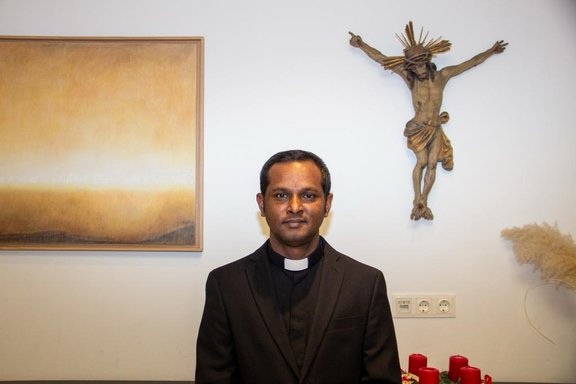
Albert Joseph Jesuraj is a Catholic priest from the diocese of Dindigul, Tamil Nadu, and right now a doctoral student at the University of Innsbruck. He graduated in English literature from Annamalai University, Madurai, and in Philosophy from Madurai Kamaraj University. He completed his master's degree in Theology in 2022 from the University of Innsbruck.
Currently, he is doing his research in social ethics at the University of Innsbruck.
Über das Projekt
This doctoral project explores the significance of Mariology, the theological study of Mary, Mother of Jesus, by examining how it intersects with key theological disciplines such as Christology, Anthropology (especially Eschatology), and Ecclesiology. A focal point of the research is the debate surrounding the Marian dogmas, specifically the Immaculate Conception and the Assumption of Mary, which are not universally accepted by all Christian denominations, often due to perceived lack of biblical support. These dogmas are seen as dividing factors within Christian ecumenism.
The project draws on the theologies of Joseph Ratzinger (Pope Benedict XVI) and Karl Rahner, two prominent Catholic theologians who, despite their differing theological perspectives, both engaged with Marian doctrines. By examining how Ratzinger and Rahner approach these doctrines, this research seeks to offer fresh insights into the significance and relevance of Mariology. It hopes to contribute to a more profound understanding of Marian dogmas within the broader Christian theological context, while also addressing the ecumenical challenges these doctrines pose.
Über mich
Philip Joseph Maria Joseph, born on May 28, 1991, in Kalugumalai, Tamil Nadu, India, is an Indian national residing now in Innsbruck. He holds an academic background in mathematics, philosophy and theology, starting with a Bachelor of Science in Mathematics from Bharathidasan University (2010-2013) and a Bachelor of Philosophy from De Paul Institute in Bengaluru (2014-2017). He pursued theological studies in Rome, earning a Bachelor of Theology (2018-2021) and a Diploma in Mariology (2018-2020) from the Pontifical Theological Faculty, Marianum. He further completed a Licentiate in Dogmatic Theology at Gregorian University (2021-2023) and is currently pursuing a Doctorate in Dogmatic Theology at the University of Innsbruck, which began in 2023.
Forschungsprojekt
MISSION AND INTERRELIGOUS DIALOGUE. The relevance of Adgentes and Nostra Aetate: The case in Uganda
Über das Projekt
Durch meine Arbeit als katholischer Priester in Uganda, Kenia, Österreich und Deutschland und durch meine Teilnahme an verschiedenen akademischen Foren als Student habe ich Spannungen zwischen den Menschen aufgrund unterschiedlicher religiöser Ansichten erlebt und erfahren. In der Erzdiözese Kampala, Uganda, sind diese Spannungen in den Familien offensichtlich, da die Mitglieder derselben Familie unterschiedliche religiöse Vorstellungen haben und sich oft verschiedenen Religionen anschließen. Es kommt immer häufiger vor, dass ein Christ und ein Muslim oder ein Atheist oder ein Anhänger einer traditionellen afrikanischen Religion im selben Haushalt leben. Dies stellt nicht nur ein interreligiöses, sondern auch ein intrareligiöses und kulturelles Spannungsverhältnis dar, da Religion und Kultur in vielen afrikanischen Kontexten miteinander verwoben sind. Die Menschen müssen also zwangsläufig lernen, ungeachtet ihrer unterschiedlichen religiösen Ansichten zusammenzuleben. Was ich bei der Lektüre von Nostra Aetate und Ad Gentes entdeckt habe, hat mich herausgefordert und inspiriert. Ich hatte das Gefühl, dass dies der beste Weg sein könnte, dieses Phänomen anzugehen und einen besseren Weg in die Zukunft zu finden.
Die Arbeit zielt daher darauf ab, religiöse Führungspersönlichkeiten und andere Beteiligte zu ermutigen, sich der Dynamik einer sich verändernden Welt und der Realität der religiösen Vielfalt, wie sie in Nostra Aetate formuliert ist, bewusst zu werden und gleichzeitig die Missionstätigkeit der Kirche, wie sie in Ad gentes befürwortet wird, im Auge zu behalten.
Betreuer der Dissertation: Univ.-Prof. i. R. Mag. Dr. Roman A. Siebenrock und Univ.-Prof. Dr. Wilhelm Guggenberger
Über mich
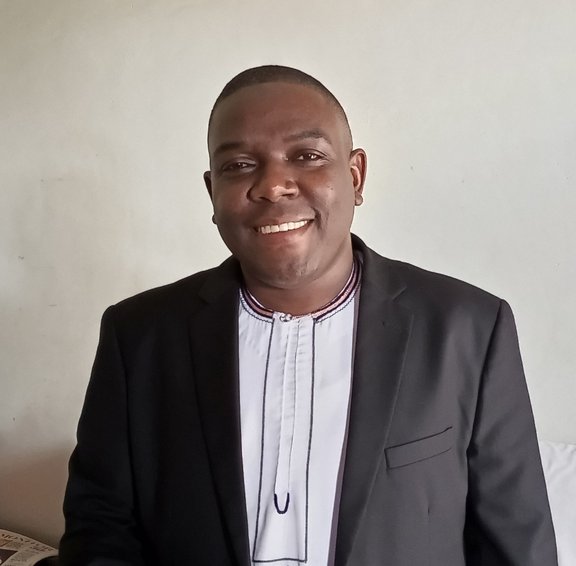
Ich bin Lawrence Joseph Kibuuka, ein Ugander, geboren am 28. Juli 1984, geweiht zum Priester am 11. August 2012 für die Erzdiözese Kampala, Uganda. Ich habe einen Bachelor-Abschluss in Sozial- und Philosophiestudien (Makerere University, Uganda), einen Bachelor-Abschluss in Sakraltheologie (Päpstliche Universität Urbaniana, Rom), einen Master-Abschluss in Religions- und Theologiestudien (Makerere University, Uganda), einen Master-Abschluss in Betriebswirtschaft (Catholic University of Eastern Africa, Kenia), einen Master-Abschluss in Katholischer Theologie (Universität Innsbruck). Derzeit bin ich Doktorand an der Katholisch-Theologischen Fakultät der Universität Innsbruck. Ich liebe Musik, spiele Volleyball und Basketball, schaue gerne Fußball, besuche andere Länder und lerne gerne andere Kulturen kennen.
Forschungsprojekt
Soziale Gerechtigkeit: Amartya Sen's The Idea of Justice and Christian Social Ethics; A Theological Response to Socio-political Context in India
Über das Projekt
Das Thema meines Forschungsprojekts lautet "Soziale Gerechtigkeit: Amartya Sen's The Idea of Justice and Christian Social Ethics; A Theological Response to Socio-political Context in India". Dieses Forschungsprojekt ist ein Versuch, die Christliche Sozialethik und Amartya Sen's Idee der Gerechtigkeit in einen Dialog zu bringen, um die Möglichkeit eines Bündnisses zur Förderung der sozialen Gerechtigkeit im zeitgenössischen indischen Kontext zu erkunden, angesichts der wachsenden Ungleichheiten, die durch die neoliberalen Mechanismen des freien Marktes, hyper-nationalistische Bewegungen, tief sitzende Ressentiments und Wut unter großen Teilen der Bevölkerung vorangetrieben werden, die bezeichnende Auswirkungen auf die demokratischen Praktiken haben. Obwohl die Christliche Sozialethik und Amartya Sen's The Idea of Justice aus zwei sehr unterschiedlichen philosophischen und theologischen Hintergründen stammen, haben sie viele Gemeinsamkeiten in ihrem Verständnis von Gerechtigkeit, Freiheit und authentischer menschlicher Entwicklung. Daher scheint es ein vielversprechendes Projekt zu sein, die christliche Sozialethik mit Amartya Sen in einen Dialog zu bringen, um komplementäre Dimensionen zwischen ihnen zu erkunden, in der Hoffnung, dass dies zu einem gegenseitigen theoretischen Beitrag führt, insbesondere zum Verständnis der sozialen Gerechtigkeit. Obwohl es bereits Versuche in dieser Richtung gegeben hat, konzentriert sich dieses Projekt auf die philosophischen und theologischen Grundlagen der sozialen Gerechtigkeit in der Idee der Gerechtigkeit und der Christlichen Sozialethik und untersucht die Möglichkeit der Komplementarität.
Über mich
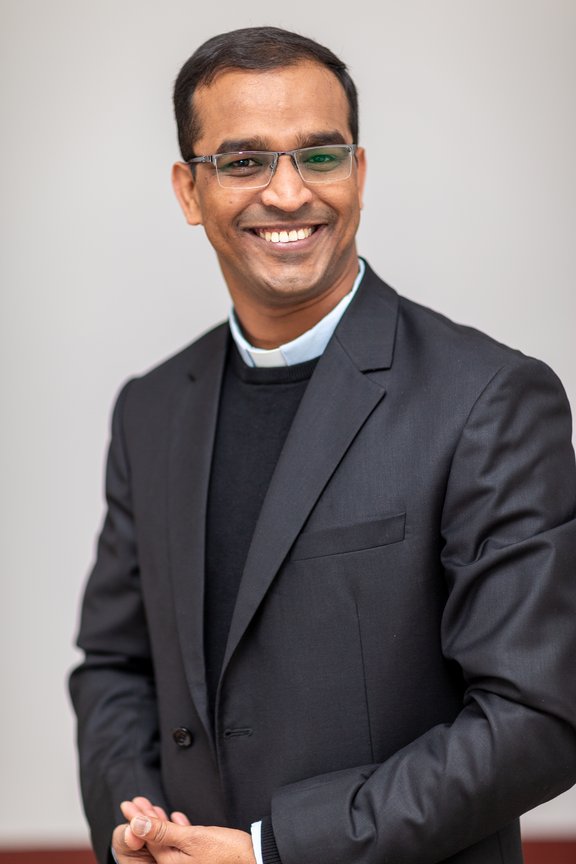
Bala Kiran Kumar Hrudayaraj SJ
Bala Kiran Kumar Hrudayaraj ist Doktorand an der Universität Innsbruck und Jesuitenpater aus der Provinz Karnataka, Indien. Er wurde in Bangalore geboren und schloss 2009 sein Studium der Wirtschaftswissenschaften und Literatur an der Universität Mangalore ab. 2015 studierte er Theologie an der Jnana Deep Vidyapeeth in Pune. Seinen Master in Theologie schloss er 2019 an der Universität Innsbruck ab. Anschließend forschte er im Fachbereich Sozialethik an der Universität Innsbruck und schloss im März 2024 sein Doktoratsstudium ab.
Dissertation Project
“That They may be one, as We are ‘One’": An Exegetical and Theological Study of John 17
About the project
The dissertation focuses on the Johannine concept of “oneness” and its implications in the believing community. What sort of oneness is Jesus praying for? Jesus prayed for “the inner oneness of the community,” “a unity of love,” and not simply a “matter of unanimity.” The source of oneness of believers is not only seen in Jesus but also in God, in particular, “in the union of Father and Son.” How does this “oneness” become missional and how does Jesus’ prayer for ‘oneness’ point to the formation of a believing community, is the research area of the project. The significance of the term “one” in John to convey the oneness of the Father and the Son and the oneness of the believers is sought out. In brief, the dissertation treats how does the term ‘one’ in John expresses theological oneness (the oneness of God), the oneness of the Son and the Father, and the oneness of the believers which is also missional in nature.
About me
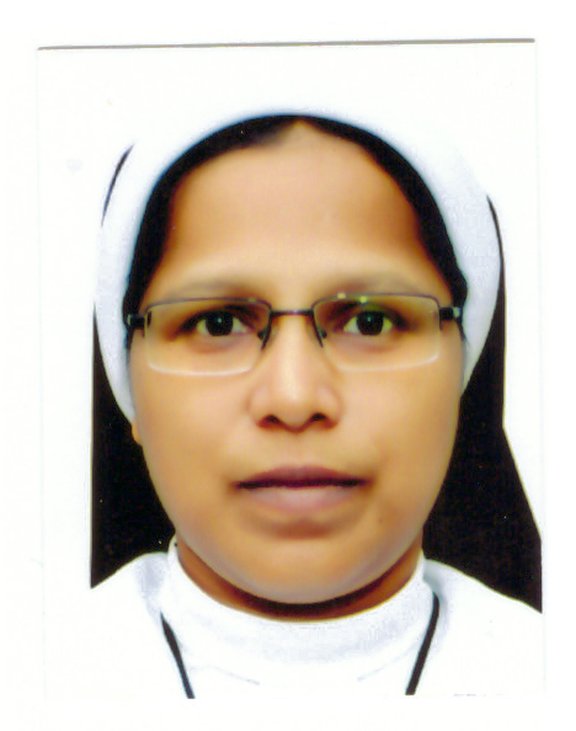
Name: Simi Kurian
Nationality: Indian
Status: Religious
Academic Education: B.Sc., B.Ed. (Graduated in Chemistry and Physics)
Profession: Teaching
Professional Experience: Taught Physical Science in school (Chemistry & Physics 2000 – 2007, 2010-2016)
Theological Studies: B.Th (2007-2010), Licentiate in Biblical Studies (2016-2018)
Dissertation Project: “That They may be ‘One’, as We are ‘One’”: An Exegetical and Theological Study of John 17
Dissertation Guide: Univ.-Prof. Dr. Liborius Paul Repschinski
Über das Projekt
Das Motiv des „Herzens“ spielt eine zentrale Rolle im Buch Exodus und dient als theologischer und anthropologischer Schlüssel zum Verständnis der göttlich-menschlichen Interaktionen. Das Buch Exodus, das im Kontext des Pentateuchs steht, verweist häufig auf das „Herz“ und unterstreicht dessen Bedeutung für die moralischen, spirituellen und theologischen Dimensionen der Erzählung. Diese Studie konzentriert sich darauf, die Vorkommen, thematischen Muster und theologischen Implikationen des Herz-Motivs im Exodus zu untersuchen und es als Linse zu verwenden, um den menschlichen Willen, die göttliche Souveränität und die Bundbeziehungen zu erforschen.
Der Begriff „Herz“ erscheint in unterschiedlichen Kontexten, von Pharaos verhärtetem Herzen, das sich dem Willen Gottes widersetzt, bis hin zu den inspirierten Herzen der Israeliten, die Akte der Großzügigkeit und handwerklichen Schöpfung vollbringen. Diese doppelte Dynamik zeigt die Spannung zwischen göttlicher Souveränität und menschlicher Verantwortung. Das Motiv des „Herzens“ wird durch zentrale Wendungen und Verben hervorgehoben, die Härte, Großzügigkeit, Weisheit und Transformation beschreiben, und macht es zu einem zentralen Element für das Verständnis der Entwicklung der Erzählung.
Die Studie untersucht außerdem die anthropologischen Aspekte des „Herzens“ und beleuchtet dessen physische, psychologische und metaphorische Konnotationen in der alttestamentlichen Literatur. Durch diese Untersuchung wird die menschliche Fähigkeit zur moralischen und spirituellen Reaktion unter göttlichem Einfluss aufgezeigt. Die theologische Bedeutung des „Herzens“ wird besonders in seiner Rolle entfaltet, göttliches Handeln, Bundgnade und menschliche Verantwortlichkeit widerzuspiegeln.
Das Motiv verdeutlicht die gegensätzlichen Wirkungen göttlichen Handelns: Während das verhärtete Herz des Pharaos zur Unterdrückung führt, bringen die inspirierten Herzen der Israeliten Kreativität und Gemeinschaftsdienst hervor. Diese Dualität offenbart ein zentrales Thema der Transformation – wie göttlicher Einfluss die menschliche Natur und Entscheidungen prägt. Die Forschung zielt auch darauf ab, die Implikationen des Herz-Motivs für das Verständnis der Bundbeziehungen zwischen Gott und seinem Volk zu beleuchten.
Letztendlich soll diese Studie einen Beitrag zur biblischen Wissenschaft leisten, indem sie Einblicke gibt, wie das Herz-Motiv breitere theologische Diskurse über göttlich-menschliche Beziehungen und moralische Verantwortung informiert. Sie unterstreicht die transformative Kraft göttlicher Gnade und die Komplexität der menschlichen Reaktion darauf. Diese Untersuchung bereichert nicht nur das Verständnis der Erzählung im Buch Exodus, sondern beleuchtet auch fortwährende theologische und moralische Fragen, die in zeitgenössischen Kontexten relevant sind. Indem diese Dimensionen adressiert werden, bietet die Studie eine differenzierte Analyse des Herz-Motivs als Grundpfeiler der Erzählung im Buch Exodus und seiner theologischen Bedeutung.
Über mich
Ich heiße Selvaraj Lazar und bin ein Weltpriester der Diözese Palayamkottai in Tamil Nadu, Indien. Zurzeit forsche ich in biblischer Theologie an der Universität Innsbruck.
Ausbildung:
- BSc (Physics) June 2004 – March 2007 - St. Xavier’s College, Palayamkottai
- BPh in Philosophy - June 2007 – March 2009 - Sacred Heart College, Chennai
- BTh in Theology – June 2011 – March - 2015 St. Paul’s Seminary, Trichy
- MA (English) - June 2015 – March 2017 - Annamalai University, Chithambaram
- MA in Theology (Licentiate) - June 2018 – March 2020 - Jnana Deepa, Pune
Dissertation
„Josef Andreas Jungmann und sein Beitrag zum Zweiten Vatikanischen Konzil – eine pastoraltheologisch-historische Spurensuche“
Über das Projekt
Josef Andreas Jungmann war neben Karl Rahner der zweite bedeutende Innsbrucker Konzilstheologe des Zweiten Vatikanischen Konzils. Im Laufe seines Lebens erlange Jungmann weltweite Bekanntheit als Experte für Liturgiegeschichte und Verfechter einer liturgischen Erneuerung. Basierend auf kirchengeschichtlicher Forschung setzte er sich für eine christozentrische Liturgie ein, an der das gesamte Volk teilhaben kann und soll. Jungmanns Beitrag zum Zweiten Vatikanischen Konzil, zum Konzilsdokument „Sacrosanctum Concilium“ und vor allem seine Rolle als Relator in der Vorbereitungskommission sind jedoch größtenteils unerforscht. Mit Hilfe seines persönlichen Nachlasses, welcher eine umfangreiche Materialsammlung zum Konzil enthält, soll diese Lücke der Forschung zum Zweiten Vatikanischen Konzil geschlossen werden.
Über mich
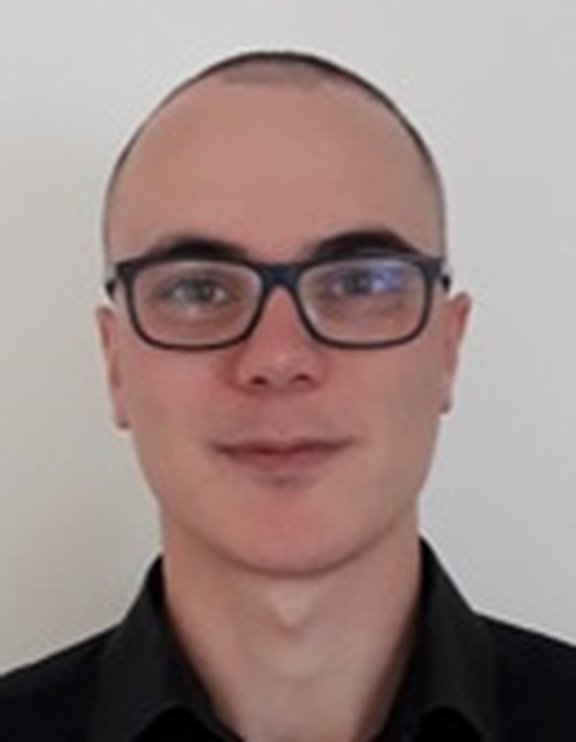
Michael Mair, geboren in Südtirol, absolvierte von 2014-2020 in Innsbruck das Lehramtsstudium der beiden Unterrichtsfächer Katholische Religion und Geschichte, Sozialkunde und Politische Bildung. Nach Abschluss im März 2020 folgte die Inskription in das PhD-Programm der Theologisch-Katholischen Fakultät der Universität Innsbruck. Im Fachbereich Pastoraltheologie bei Erstbetreuer Prof. Christian Bauer widmet sich Michael Mair in seinem Dissertationsprojekt dem Wirken von Josef Andreas Jungmann im Zweiten Vatikanischen Konzil. Zweitbetreuer dieser Arbeit ist Prof. i.R. Rudolf Pacik aus Salzburg.
Dissertationsprojekt
Inhalt und Ausmaß des Heils in der in Jes 51,1–52,12 angekündigten Tröstung
Über das Projekt
Das Buch Jesaja offenbart eine ganze literarische, sprachliche, strukturelle, thematische und sogar theologische Komplexität, die es schwierig macht, seine innere Logik zu bestätigen. Um diese Schwierigkeit zu lösen, besteht die große Tendenz darin, auf das autoritäre Argument zurückzugreifen. Durch die Annäherung an den Text mittels der synchronen Methode scheint uns jedoch eine Logik den Inhalt des Buches zu durchdringen.
Jesaja 51,1-52,12 ist ein Text, der alle oben erwähnten Komplexitäten in sich vereint. Der Zweck dieser Arbeit ist es, diesen Text durch eine synchrone Studie zu vertiefen, um seine Logik hervorzuheben. Aber beim Lesen des Textes fällt einem der Reichtum der Trostbotschaft auf, die ihn durchdringt und deren Besonderheit darin besteht, die existentielle Realität der Empfänger nicht zu verdunkeln. Diese Botschaft findet somit ihre volle Bedeutung im ivorischen sozio-religiösen Kontext, der von einer Verkündigung der biblischen Trostbotschaft geprägt ist, manchmal ohne Rücksicht auf die existenzielle Realität der Empfänger. Wir finden es daher wichtig, ausgehend von diesem Jesajatext auch über die Frage der Heilsverkündigung im aktuellen ivorischen Kontext nachzudenken.
Über mich
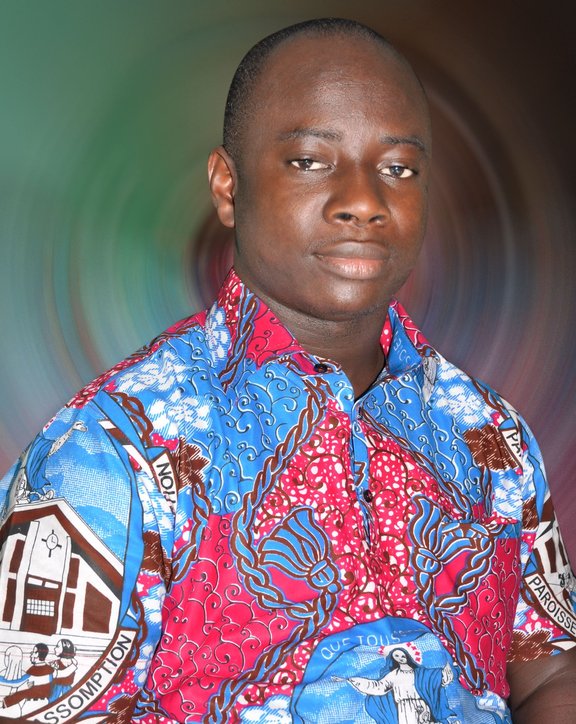
Name: Motché Ehouman Kystone Frederic
Staatsbürgerschaft: Ivorer
Ausbildung:
- Oktober 2005-Juni 2007
Philosophiestudium am Priesterseminar saint Paul d‘Abadjin Kouté - Juni 2012
Université Catholique d‘Afrique de l’Ouest - April 2021
Magister Theologie an der Universität Innsbruck
Forschungsprojekt
Reimagining Belonging: Foreigners And Eunuchs in the Formation of a Superordinate ‘We’ in Isaiah 56:1-6 and Acts 8:26-40
Über das Projekt
Even in the twenty-first century, as discussions around the inclusion of gender minorities and migrants in mainstream society and the Church continue, it is remarkable to note that centuries ago, Third Isaiah envisioned the inclusion of foreigners and eunuchs within the religious community. He even promised them honour greater than that of the most esteemed community members, symbolized by the creation of a memorial within the temple premises (Isaiah 56:5). Although there is no explicit record of this prophetic vision being fulfilled in the Old Testament, the Acts of the Apostles recount the baptism and acceptance of an Ethiopian eunuch into the community of believers (Acts 8:26-40). This incident reflects the realization of the inclusive vision outlined in Isaiah.
Interestingly, there appears to be a lack of research examining the exegetical and hermeneutical relationship between these two passages. The present study seeks to address this gap by conducting a detailed analysis of Isaiah 56:1-6 and Acts 8:26-40, uncovering hermeneutical connections between the texts.
The research begins with a brief exploration of Social Identity Theory (SIT) and its relevance to biblical studies. Using SIT as a heuristic tool, it will analyse how the inclusion of foreigners and eunuchs in both Isaiah’s prophecy and Acts reflects significant identity-forming moments in history. Isaiah's vision arises in the post-exilic period, marked by the rebuilding of the temple and the reorganization of the Jewish community. Similarly, the Ethiopian eunuch’s baptism in Acts takes place during the early Christian community’s transition amidst conflicts and its eventual separation from Judaism.
In these contexts of identity formation, the selected texts highlight prophetic vision (Isaiah 56) and prophetic action (Acts 8), emphasizing the creation of a ‘superordinate we-community’ that welcomes both foreigners and gender minorities. This study aspires to serve as one of the tools for future research to uncover the theological, social, and cultural implications of these inclusive practices for the Church and society today.
Über mich
Ich bin PETER Wilson Wilfred, ein Priester der Gesellschaft des Göttlichen Wortes (SVD), einer internationalen Missionskongregation. Vor meiner Priesterweihe im Jahr 2014 erwarb ich 2005 meinen Bachelor-Abschluss in Soziologie am Loyola College in Chennai. Meine philosophischen Studien absolvierte ich am SVD Vidya Bhavan in Bhopal (2006–2008), gefolgt von theologischen Studien (STB) am Jnana Deepa in Pune (2010–2013). Nach meiner Priesterweihe war ich zwei Jahre lang als Vikar in der Sacred Heart Church in Mumbai tätig und anschließend ein Jahr als Ausbilder in unserem Seminar. Später setzte ich mein Studium fort und erlangte ein Lizenziat in der Heiligen Schrift am Päpstlichen Bibelinstitut in Rom (2017–2021). Anschließend hatte ich das Privileg, von 2021 bis 2023 verschiedene Fächer der Bibelwissenschaften am Jnana Deepa in Pune, Indien, zu unterrichten.
Forschungsprojekt
Refocusing Postmodern African Youth Ministry through the Integration of Family and Mission: A Case Study of the Catholic Diocese of Sekondi-Takoradi - Ghana
Über das Projekt
Die postmoderne christliche Jugendarbeit steht in der sich rasch wandelnden Kulturlandschaft von heute vor zahlreichen komplexen Herausforderungen. Das Nachsynodale Apostolische Schreiben Christus Vivit identifiziert einige dieser Herausforderungen und bietet wertvolle pastorale Leitlinien, die für den afrikanischen Kontext angepasst werden müssen. Während sich das koptische Christentum zwischen dem 4. und 6. Jahrhundert von Ägypten nach Nubien (dem heutigen Sudan) ausbreitete, wurde das Christentum in weiten Teilen Subsahara-Afrikas, einschließlich Ghana, weitgehend durch westliche Einflüsse (im 15. und 19. Jahrhundert) eingeführt. Infolgedessen wurden das afrikanische Christentum und seine Methoden und Paradigmen der Jugendpastoral maßgeblich von westlichen kulturellen und philosophischen Paradigmen geprägt. Meine Forschung untersucht daher den Einfluss der westlichen Postmoderne auf die katholische Jugendpastoral in Ghana am Beispiel der katholischen Diözese Sekondi-Takoradi. Anhand theoretischer und empirischer Untersuchungen bewertet die Studie, wie die Postmoderne die zeitgenössische afrikanische Jugendarbeit geprägt hat. In Anerkennung der Tatsache, dass das Christentum jüdische Wurzeln hat und aus einem kulturellen Kontext des Nahen Ostens hervorgegangen ist, der die Methoden und Praktiken der frühchristlichen Glaubensbildung tiefgreifend geprägt hat, schlägt die Studie eine theologische Rückbesinnung der postmodernen katholischen Jugendpastoral auf ihre ursprünglichen jüdisch-christlichen Werte vor. Diese Neuausrichtung ist für Afrika besonders überzeugend, da Afrika einige grundlegende kulturelle Werte mit den biblischen Wurzeln teilt. Dazu gehören ein starkes Familienbewusstsein und ein ausgeprägtes Missionsbewusstsein. Die Wiedereingliederung der Werte von Familie und Mission wird daher als eine fundierte theologische und pastorale Antwort auf die Herausforderungen der Postmoderne angesehen. Sie bietet Instrumente, um der kulturellen und spirituellen Desorientierung zu begegnen, die oft mit der Postmoderne verbunden ist, insbesondere im afrikanischen Kontext. Sie eröffnet auch neue Möglichkeiten für das Wachstum und die Erneuerung der Jugendpastoral in Ghana, im weiteren afrikanischen Kontext und im globalen Raum der Jugendpastoral.
Über mich

Mein Name ist Dominic Nelson Tawiah und ich wurde am 6. Oktober 2012 zum römisch-katholischen Priester geweiht. In den letzten dreizehn Jahren umfasste mein priesterliches Amt sowohl Seelsorge als auch akademisches Engagement. Nach meiner Weihe war ich als Vikar in der Pfarrei Immaculate Conception in Asankrangwa (2012), als stellvertretender Grotten (Nawule) und als Vikar in der Pfarrei Sacred Heart in Kojokrom (2015) tätig. Im Jahr 2016 absolvierte ich ein Aufbaustudium in Amerika (Cincinnati), woraufhin ich nach Ghana zurückkehrte, um als Vikar in der Kathedrale in Takoradi (2018) zu dienen.
Derzeit promoviere ich an der Universität Innsbruck in Pastoraltheologie mit dem Schwerpunkt „Refocusing Postmodern African Youth Ministry through the Integration of Family and Mission: A Case Study of the Catholic Diocese of Sekondi-Takoradi - Ghana“. Als ältestes von sechs Geschwistern (vier Brüdern und zwei Schwestern) schätze ich die Familie sehr. Ich bin mehrsprachig, spreche Englisch und Deutsch (mit mäßigen Kenntnissen in Spanisch und Französisch) sowie vier ghanaische Sprachen, eine Gabe, die ich durch meine vielfältigen pastoralen Erfahrungen verfeinert habe. Zu meinen Leidenschaften in der Seelsorge gehören die Arbeit mit Jugendlichen und Kindern, der Besuch von Kranken und die Spendung der Heiligen Kommunion. Außerdem singe ich gerne, spiele Schlagzeug, höre Musik, lese, schreibe und unterrichte. Ich empfinde es als besonderes Privileg, Teil der Doktorandengruppe an der Theologischen Fakultät der Universität Innsbruck zu sein. Die Gruppe bietet ein unterstützendes und anregendes Umfeld für akademisches Wachstum, konstruktives Feedback und kollegialen Austausch – eine Erfahrung, die ich sehr schätze.
Dissertationsprojekt
How does God solve the problem of Israel’s leadership? The image of the shepherd in Ezekiel 34.
Über das Projekt
Ezekiel 34 unterstreicht die Bundeshoffnung auf die zukünftige Wiederherstellung eines neuen Israel. Einige Forschungsziele sind: a. Zu einer theologischen Interpretation mit dem Bild des Hirten zu gelangen; b. Auf die intertextuellen Beziehungen des Textes hinzuweisen; c. Den Zusammenhang der Texte des Kapitels aus der Perspektive des indischen Dichters Thiruvalluvar herauszuarbeiten. Die folgenden Fragen werden bearbeitet: Was war das Ergebnis von Israels Führungsversagen? Hat Gott seine Führung bekräftigt? Wie kann man „David“ als den verheißenen Hirten Israels verstehen? Wie relevant ist die Metapher des Hirten heute?
Über mich
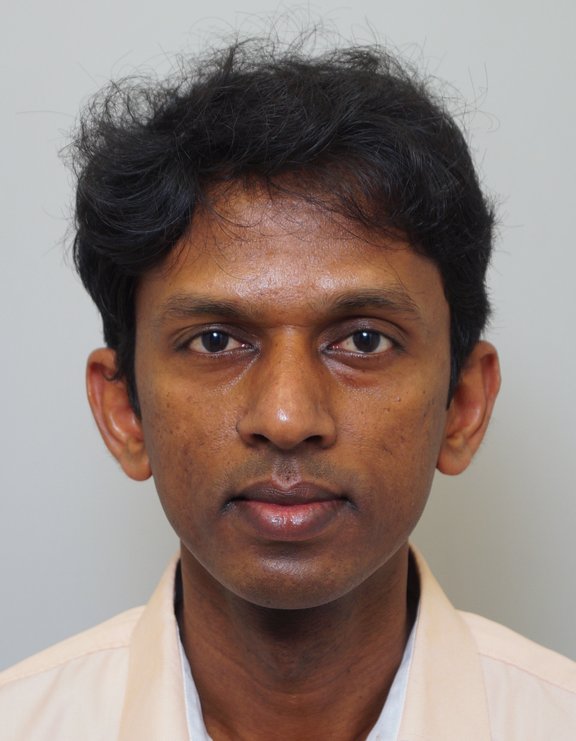
Anthony Raj Thomas ist Servitenpater und kommt aus Indien. Er lebt seit 5 Jahren in Österreich. Seit 2020 ist er Doktorand im Fach Altes Testament und schreibt seine Dissertation unter der Betreuung von Prof. Dr. Georg Fischer SJ. Er ist seit 2021 Studentenseelsorger an der Universitätspfarre Innsbruck.
- 2004-2007 Bachelor in Pflanzenbiologie und Pflanzenbiotechnologie
St. Joseph College, Tiruchirappalli, Indien - 2008-2010 Magister der Philosophie
Loyola College, Chennai, Indien - 2011-2015 Bachelor der Theologie
Päpstliches Institut St. Peter, Bangalore, Indien - 2019-2020 ULG-Pastoraljahr
Katholisch-Theologische Fakultät der Universität Innsbruck
Dissertationsprojekt
A Dramatic Understanding of the Church as Communion and Its Relevance for Community Building in India.
Über das Projekt
Understanding the Church as communion is the subject of my dissertation. The research questions are: How can the aspect of communion be concretely expressed and lived out at different levels of the Church? What kind of communion or community is needed within the Church? How can the understanding of the Church as communion contribute towards ecumenical dialogue and mission amidst the clamour for power and authority, the existence of strife, conflicts, divisions, and sins in the Indian Church? In my dissertation, I would like to engage in dialogue with the theologies of Walter Kasper and John Zizioulas. Conflicts and sins are part of the Church but they are not dealt with sufficiently in communion ecclesiology and so it seems to be also with the ecclesiologies of Kasper and Zizioulas. Critics often say that communion ecclesiology bears a structural resemblance to a functionalist account of society and that it tends to paper over tensions and conflicts. I will try to clarify in how far these critics are right, and I hope to be able to address the problems of conflict and sin by using Dramatic Theology as a tool.
Über mich
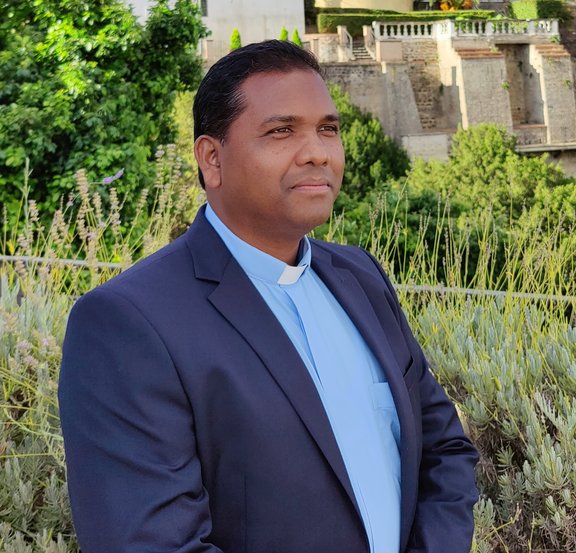
- 2003-2006 Bachelor of Arts (BA)
Mass Communication & Video Production
St. Xavier’s College, Ranchi University (Ranchi, Jharkhand, India) - 2007-2009 Master of Arts (MA) Philosophy
Ecclesiastical: Sacred Heart College – Institute of Philosophy and Culture
Secular: Loyola College, Madras University (Chennai, India) - 2011-2014 Bachelor of Theology (BTh)
Jnana- Deepa (Pontifical Institute of Philosophy and Religion) (Pune, India) - 2016-2018 Master of Theology MTh/ Licentiate
“An Emerging Indigenous Theology: A Quest for Holistic Liberation for the Adivasis of Jharkhand”
Jnana- Deepa (Pontifical Institute of Philosophy and Religion) (Pune, India) - since 2019 Doctorate in Systematic Theology (Ecclesiology)
“A Dramatic Understanding of the Church as Communion and its Relevance for Community Building in India”
University of Innsbruck (Innsbruck, Austria)
Forschungsprojekt
Unveiling 'The Hour': An Exegetical and Theological Study of John 12:20–50
Über das Projekt
My dissertation is titled "Unveiling 'The Hour': An Exegetical and Theological Study of John 12:20–50". The reason behind this title is the mysterious narrative style of the fourth Evangelist, which is prominently found in this pericope. The text uses symbolic language that is difficult to comprehend without a thorough exegesis based on the original language and background study. Given the nature of the text, I firmly believe that a deep exegesis is the only way to attain a reasonable interpretation.
The Fourth Gospel varies from the Synoptic Gospels in its theology and narrative style. It is commonly referred to as the "Spiritual Gospel" and is comprised of four main sections: Prologue (1:1–18), Book of Signs (1:19–12:50), Book of Glory (13:1–20:31), and Epilogue (21:1–25). Jn 12:20–50 is a crucial pericope because it encompasses most of the themes, concepts, imageries, symbols, and theology found in the Gospel of John. It serves as a summary of the "Book of Signs" and the gateway to the "Book of Glory." This pericope highlights Christ's centrality in the Gospel, with "The Light" playing a significant role. An exegetical examination of Jn 12:20-50 can enhance our understanding of the Fourth Gospel and enable better interpretation. This dissertation will explore the concept of "The Hour" by analyzing its immediate and broader biblical context. We will also delve into the significance of Jesus' impending death, resurrection, and glorification in the context of "The Hour." Additionally, this thesis will investigate the theological implications of this phrase and its relevance to contemporary believers. The passage in John 12:20–50 serves as a bridge between Jesus' earthly ministry and the events leading to His crucifixion and resurrection. It underscores the importance of belief in Him and the resulting implications for salvation and eternal life.
Research Questions
What is the literary context of the text?
What are the theological, Christological, and eschatological aspects in the text?
How does the evangelist utilize symbols and images to convey the message of Jesus?
How does the evangelist address the pericope’s themes of belief and unbelief?
Über mich

My name is Jomet Vazhayil Jose. I was ordained as a priest for the Syro-Malabar Catholic Diocese of Kalyan, Maharashtra, India on 30-04-2011 in my native parish in Kerala, India. I hold three Bachelor’s Degrees: in Philosophy (BPh), Theology (BTh), and Sociology (BA). Additionally, I have a Licentiate in Biblical Theology from Jnana Deepa, Pune. After ten years of pastoral ministry in the diocese, I came to Innsbruck for my Doctorate in New Testament. I am currently pursuing my doctorate in New Testament at Innsbruck University under the guidance of Professors Boris Repschinski SJ and Martin Hasitschka SJ.
Em. Univ.-Prof. Dr. Georg Fischer SJ
Institut für Bibelwissenschaften und Historische Theologie
Univ.-Ass. Mag. Marisa Hanna Gasteiger
Institut für Systematische Theologie
Ao. Univ.-Prof. Dr. Wilhelm Guggenberger
Institut für Systematische Theologie
Univ.-Prof. Dr. Stefan Hofmann SJ
Institut für Systematische Theologie
Univ.-Prof. Dr. Christoph Jäger
Institut für Christliche Philosophie
Univ.-Prof. Dr. Liborius Olaf Lumma
Institut für Bibelwissenschaften und Historische Theologie
Institut für Bibelwissenschaften und Historische Theologie
Ao. Univ.-Prof. Dr. Josef Quitterer
Institut für Christliche Philosophie
Univ.-Prof. Dr. Boris Repschinski SJ
Institut für Bibelwissenschaften und Historische Theologie
Ao. Univ.-Prof. Dr. Willibald Sandler
Institut für Systematische Theologie
Em. Univ.-Prof. Dr. Roman Anton Siebenrock
Institut für Systematische Theologie
assoz. Prof. Dr. Nikolaus Wandinger
Institut für Systematische Theologie
Ao. Univ.-Prof. Dr. Andreas Vonach
Institut für Bibelwissenschaften und Historische Theologie
Baraza, Amos Odhiambo
Crossian, Sebastian
Dabre, Linus
Damin, Jean-Marc
D´Souza, Snehal Marcus
Gasteiger, Marisa Hanna
Gimba, Cosmas Patrick
Ilić, Luka
Jesuraj, Albert Joseph
Joseph, Philip Joseph Maria
Kibuuka, Lawrence Joseph
Lazar, Selvaraj
Peter, Wilson Wilfred
Tawiah, Dominic Nelson
Thomas, Anthony Raj
Vazhayil Jose, Jomet
Chapala, Subbaiah
Kumar Hrudayaraj, Bala Kiran
Kurian, Simi
Mair, Michael
Motché , Ehouman Kystone Frederic
Statute of the Doktoratskolleg / Doctoral Research Group
Catholic Theology in a globalised World at the Leopold-Franzens-University of Innsbruck
The Doctoral College “Theology in the World Church” (DKTh) focuses on significant developments in the church and international society. It aims to contribute to a theology that seeks to help a church facing many challenges and conflicts to better assume its global responsibility, both internally and externally. As the oldest and greatest global player, in European history and probably beyond, the Catholic Church can make a helpful and lasting contribution to a world society in the midst of both radical change and deep crisis.
The traditionally high number of international doctoral students at the Innsbruck Faculty of Theology lends itself to such an orientation. In addition to the Jesuit College, it is especially worth mentioning the Canisianum, in which students are also given spiritual guidance. In continuity with this tradition, the DKTh also wants to contribute to increasing the proportion of qualified women from all over the world, both in church and in society. These international students bring a wide range of experiences from very different social classes, alongside conflicts and opportunities, from potentially all cultures.
This diversity and plurality of students is representative of the situation of the Catholic Church after the Second Vatican Council. According to Karl Rahner, the church has entered a new historical epoch, in which it is genuinely to become a world church, i.e. a faith community which is truly inculturated in many cultures and contexts, and which lives its "catholicity" ecumenically and interreligiously. Amidst this diversity and plurality, it is important to ask how the Church today realizes internal unity in solidarity with all people (LG 1; GS 1). It is within this complex field that the DKTh is located and will explore the questions, problems and conflicts that are its remit, to become a laboratory for a "world theology" of the future. The Second Vatican Council said that the “Church has always had the duty of scrutinizing the signs of the times and of interpreting them in the light of the Gospel” (GS 4). This impulse has become theologically fruitful, especially in the countries of the global South. The aim is to create interchange between systematic and practical theology, which seeks to convey life and doctrine, as well as theory and practice, constitutively with one another. This task has been emphasized by the Apostolic Constitution "Veritatis gaudium" (2017) and recommended to the universal church. The latter text calls for a radical paradigm shift and a courageous cultural revolution (VG, Introduction 3). In setting out the guiding principles of the Catholic Church as a global educational institution for the coming decades, the “Veritatis gaudium”, together with "Fratelli tutti" (2020), forms the inspirational basis of the DKTh.
The DKTh wants to become a future-oriented research institution, in which scholars can interact with responsible freedom and with mutual transparency, “thus entering into dialogue among themselves for the sake of protecting nature, defending the poor, and building networks of respect and fraternity” (VG 5). The “Leopold Franzens University of Innsbruck” (UIBK) is an ideal place for such a project. "Veritatis Gaudium" promotes the joint effort of all good-willed people to work on a human future in this Earth, our common home. This corresponds to the sustainability goals of the UNO, which have been adopted by the Republic of Austria and the UIBK. In this context, a science of faith is guided as much by peace and justice as by the aim of preservating Mother Earth as our only possible home. The Faculty of Theology has committed itself to paying special attention to SDG 16 (Peace, Justice and Strong / Inclusive Institutions). This framework corresponds to the basic spiritual attitude that the Society of Jesus, in its Pastoral Preferences, has suggested to all educational institutions under its aegis. These are: 1: to show the way to God through the Spiritual Exercises and discernment; 2.: to walk with the poor, the outcasts of the world, and those whose dignity has been violated, in a mission of reconciliation and justice; 3.: to accompany young people in the creation of a hope-filled future; 4.: to collaborate in the care of our common home. Against this backdrop, the DKTh will incorporate into the education of our students the expertise within our university from areas dealing with sustainability, post-secular conflicts, the search for meaning, and intercultural encounters and conflicts. For this reason, its integration into the research focus "Cultural Encounters - Cultural Conflicts" is more than just a formal provision; it is the basis for an ongoing exchange.
Theology owes its existence at a state university primarily to the high academic standards of its research. The DKTh plays a key role in this quality assurance. It is a fitting place to develop, as the “Veritatis Gaudium” expresses it, “intellectual tools that can serve as paradigms for action and thought, useful for preaching in a world marked by ethical and religious pluralism. To do so calls not only for profound theological knowledge, but also the ability to conceive, design and achieve ways of presenting the Christian religion capable of a profound engagement with different cultural systems. All this calls for increased quality in scientific research and a gradual improvement in the level of theological studies and related sciences“ (VG, Introduction, 5). Philosophy has always been a guarantor for the conceptual clarity and argumentative coherence of theological thought. It therefore goes without saying that the doctoral programme in Catholic theology will maintain an intensive exchange with philosophy, especially with the DK “Philosophy of Religion”.
The DKTh welcomes any project from any students from anywhere in the world, provided it is academically excellent and connects to the research foci of the Faculty of Theology. In addition, it is crucial for doctoral students to engage in dialogue and exchange among themselves and with others. In this way the DKTh will establish a network of communication that can ensure cooperation (even after their studies). Students working on projects from traditionally European countries are encouraged to reflect on the significance and limits of a European theology within the framework of a nascent world church.
The DKTh empowers students to acquire the intellectual and practical skills and sensitivity that they will need, not only to survive in the academic world, but also to provide their churches and societies with the education needed to meet our current global challenges.
Teachers and students interested in the DKTh are invited to apply for admission (for the conditions see below). Doctoral students can apply for doctoral scholarships in conjunction with the DKTh (for further information, please contact the speaker)
- The two types of faculty membership in the DKTh are active and associate membership. (Note that the label ‘faculty member of the DKTh’ is distinct from ‘faculty member of/at the UIBK’.)
- Active faculty membership in the DKTh is open to all faculty members of the UIBK, and of other academic institutions, conditional on the following requirements:
- (i) An Active Member must possess the required qualifications for supervising doctoral thesis at the UIBK or other academic institutions. In exceptional cases, academics who lack a venia legendi or other relevant qualifications but hold a PhD or a Dr.theol. with an outstanding international reputation in the relevant fields can become members as well.
- (ii) An Active Member must supervise, or must have supervised within the past five years, at least one doctoral thesis of a doctoral student of the DKTh.
- (iii) The founding Active Members are listed in Attachment 1. They have been designated by the founding Speaker.
- Active Members form the voting body of the Faculty Assembly, and they are eligible for the Steering Committee.
- Active Members who have not supervised a dissertation of a student member of the DKTh in the past five years shall lose their active membership status and become Associate Members.
- In the foundational phase of the DKTh (which lasts three years from the date when this statute comes into force) the Speaker shall designate a foundational group of Active Members who will form the initial voting body of the Faculty Assembly.
- New prospective members seeking active membership shall send a written request to the Speaker. Upon receiving the request, the Speaker will notify the members of the Faculty Assembly about the request with a written statement. The members of the Faculty Assembly shall then decide, in a meeting or via circular resolution, on the request by a simple majority.
- Associate membership in the DKTh is open to all faculty members at the UIBK, and of other academic institutions, who have a track-record of high-quality research and publications within the topical scope of the DKTh.
- Those seeking associate membership shall send a written request to the Speaker. Upon receiving the request, the Speaker will notify the members of the Faculty Assembly about the request with a written statement. The members of the Faculty Assembly shall then decide, in a meeting or via circular resolution, on the request by a simple majority.
- Associate Members are entitled to participate as observers in meetings of the Faculty Assembly of the DKTh. They do not participate in meetings of the Steering Committee.
- Active and Associate Members can resign at their own request. To do so, they shall send a written notification to this effect to the Speaker.
- In the case of serious violations of the standards and rules for good scientific practice (as defined by the Austrian Agency for Research Integrity) or the neglect of duties as doctoral supervisors, Active and Associate Members can be excluded from the DKTh. In cases of suspected violation or neglect, the Speaker shall issue a written statement to the respective member requesting clarification. If the matter is not resolved within a period of four weeks, the Speaker shall inform the Faculty Assembly of the DKTh. Its members shall discuss the matter and come to a binding decision, with a two-thirds majority, concerning whether to exclude the respective member or not. If a primary doctoral supervisor is excluded from the DKTh, the Speaker shall inform the Dean of Studies of this decision, also all active members of the Faculty. The Faculty Assembly shall then assist the doctoral student in finding a new primary supervisor.
- The bodies of the DKTh include a Speaker, a Vice Speaker, a Scientific Manager, a Representative of the doctoral students of the DKTh, a Faculty Assembly, a Steering Committee, and a General Assembly.
- The Speaker will
- (i) represent the DKTh within the UIBK and beyond (i.e., to other universities, other institutions and the public);
- (ii) provide strategic guidance for the development of the DKTh;
- (iii) notify the Active Members of the Faculty Assembly with a written statement about requests for membership in the Faculty of the DKTh;
- (iv) nominate a Vice Speaker and a Scientific Manager;
- (v) initiate the process of evaluating and deciding upon the status of Faculty Members and Doctoral Students in the DKTh as specified in articles 1 and 3 of this statute.
- The Speaker will serve for a period of three years in the DKTh. Re-election is possible.
- In the foundational phase of the DKTh, i.e., for the first three years from the date when this statute comes into force, the person who has initiated the DKTh and been nominated by the Rectorate to inaugurate it will serve as Speaker.
- The Speaker can resign at his or her request by sending a written notification to this effect to the Faculty Assembly.
- The Speaker shall nominate one Active Member of the DKTh as Vice Speaker, and one Active Member or Associate Member as Scientific Manager. The members of the Faculty Assembly shall decide on the nominees with simple majority. The period of the Vice Speaker is linked with the period of the Speaker.
- The Speaker is assisted by the Vice Speaker and represented by the latter when the Speaker is temporarily not in a position to carry out the relevant tasks (e.g., because of absence, illness etc.).
- The Vice Speaker will serve for a period of three years in the DKTh. Reelection is possible.
- The Vice Speaker can resign at his or her request by sending a written notification to this effect to the Speaker.
- The Scientific Manager’s task is to
- (i) support the Speaker in all matters of scientific and administrative coordination;
- (ii) be a non-voting member of the Steering Committee;
- (iii) support the Steering Committee and the Faculty Assembly in preparing meetings and implementing decisions.
- The Scientific Manager will serve for a period of three years in the DKTh. Re-election is possible.
- The Scientific Manager can resign at his or her request by sending a written notification to this effect to the Speaker.
- The doctoral students of the DKTh elect a doctoral-student Representative.
- The doctoral-student Representative is entitled to participate as non-voting observer in the Faculty Assembly.
- The doctoral-student Representative will serve for one year. Re-election is possible.
- The doctoral-student Representative can resign at his or her own request by sending a written notification to this effect to the Speaker.
- The Faculty Assembly is a meeting of the Active Members, the Associate Members, and the doctoral-student Representative of the DKTh.
- Only Active Members are allowed to vote in the Faculty Assembly.
- Decisions by the Faculty Assembly require participation of Active Members who represent at least 2/3 of the votes due to the Active Members. Active Members who are unable to attend a meeting can transfer their vote to another Active Member; one Active Member may represent no more than two votes.
- A Faculty Assembly shall be convened by the Speaker at least once per academic year.
- The Speaker shall chair the meetings of the Faculty Assembly.
- The Active Members of the Faculty Assembly shall
- (i) decide by a simple majority on the admission of new Faculty Members and doctoral students, on acceptance of the nominations for membership in the Steering Committee, and on acceptance of nominations for the positions of Vice Speaker and Scientific Manager;
- (ii) decide with a two-thirds majority on the exclusion of doctoral students, changes in the statute, and the termination of the DKTh;
- (iii) decide with a two-thirds majority on the exclusion of a Faculty Member; Active Members who are subject to the decision shall not have the right to vote on their own exclusion.
- The Steering Committee consists of the Speaker, the Vice Speaker, the non-voting Scientific Manager, and the non-voting doctoral-student Representative of the DKTh.
- The Steering Committee shall
- (i) suggest and coordinate the activities of the DKTh (e.g. prepare workshops, lecture series, research meetings, administrative meetings, or similar activities);
- (ii) discuss, and make written recommendations to the Faculty Assembly about issues related to the activities and quality of the DKTh.
- The Steering Committee will meet on demand.
- The Speaker shall chair the meetings of the Steering Committee.
- The General Assembly is a meeting of the Active Members, Associate Members, the Speaker, the Scientific Manager, and the doctoral students.
- The General Assembly shall
- (i) be convened by the Speaker at least once per academic year;
- (ii) discuss all relevant matters of the DKTh
- The Speaker shall chair the meetings of the General Assembly.
- Admission of doctoral students
- (i) (Prospective doctoral student members shall submit a proposal including a letter of motivation, an outline of their proposed research project, and an academic CV, including relevant certificates, to the Speaker. The Steering Committee shall assess the qualifications of the prospective students and the quality of the proposed projects. It shall then make a written recommendation to the voting members of the Faculty Assembly of the DKTh.
- (ii) The voting members of the Faculty Assembly decide on the admission of a doctoral student to the DKTh. If the student has a first and/or second supervisor, this decision includes a written acknowledgment of the primary or secondary supervisor. The decision shall be made by a simple majority vote.
- (iii) Prospective doctoral students who do not yet have a primary or secondary supervisor will be assisted by the Steering Committee in their search for and choice of a supervisor.
- The affiliation of a doctoral student with the DKTh ceases automatically after he or she has successfully completed all of the duties set out in his or her PhD programme and curriculum. On graduation, doctoral students receive a certificate of the DKTh, signed by the Speaker, which states their successful participation in the DKTh. Furthermore, doctoral students can resign at their own request. To do so, they shall send a written notification to this effect to the Speaker.
- In the case of violations of the standards and rules for good scientific practice, or the neglect of duties applying to doctoral students of the DKTh, doctoral students can be suspended from the DKTh. In a case of such violations, the student’s supervisor shall issue the student a written request for clarification. If the matter is not resolved within a period of four weeks, the supervisor shall inform the Faculty Assembly of the DKTh. Its members shall then discuss the matter and come to a binding decision about the possible exclusion of the respective doctoral student with a two-thirds majority.
- A doctoral thesis shall be supervised by two Active Members of the DKTh. One Active Member must be the primary supervisor; the other Active Member shall be the secondary supervisor.
- Primary supervisions by scholars who do not serve as Active Members of the DKTh are not allowed.
- Secondary supervisions by scholars who do not serve as Active Members of the DKTh are allowed, provided that the secondary supervisor meets the requirements outlined in Art. 1.2, (i), of this statute.
- In order to foster and comply with the organizational structure of established doctoral curricula at the UIBK or other universities, the DKTh will not develop any alternative or additional doctoral curricula. Instead, it requires its doctoral students to meet the requirements of the respective curricula of the doctoral programmes in which they are enrolled.
- The DKTh encourages its doctoral students to attend all courses that are suitable to further their knowledge in their fields of research, their academic writing skills, and their skills in presenting and publishing.
- Doctoral students of the DKTh shall attend the workshops, research meetings, lecture series etc. of the DKTh.
- The DKTh shall terminate, if
- (i) the members of the Faculty Assembly decide on the termination with a two-thirds majority;
- (ii) the Rectorate of the University of Innsbruck formally terminates the DKTh.
- If the DKTh is terminated, the primary supervisors shall continue the active supervision of their doctoral students
Founding members of the DKTh
Ao.-Univ.-Prof. Dr. Wilhelm Guggenberger (Dean, Professor of Social Ethics)
Univ.-Ass. Priv.-Doz. Dr. Liborius Olaf Lumma (Dean of Studies and Vice-Dean, Liturgy)
Univ.-Prof. Dr. Christian F. Bauer (Professor of Pastoral Theology)
Univ.-Prof. Dr. Georg Fischer (Professor of Old Testament Studies)
Univ.-Prof. Dr. Christoph Jäger (Professor of Philosophy)
Ao. Univ.-Prof. Dr. Josef Quitterer (Professor of Philosophy)
Univ.-Prof. Dr. Boris Repschinski (Professor of New Testament Studies)
Ao. Univ.-Prof. Dr. Willibald Sandler (Professor of Dogmatic Theology)
Univ.-Prof. Dr. Roman A. Siebenrock (Professor of Dogmatic and Fundamental Theology)
Prospective doctoral student members and their projects
Applications are advertised with the acknowledgement of the application.
Innsbruck, 14. 01. 2021
Do, 12.3.2026 18.00 Uhr im Hörsaal 1
Öffentlicher Gastvortrag von Sr. Linda PocherMi, 18.3.2026 17.00 Uhr im Dekanatssitzungssaal
Gespräch mit Prof. Thomas Karimundackal für Mitglieder des DKsFr, 19.6.2026 13.30-14.30 Uhr Dekanatssitzungssaal
Sitzung der Faculty Members des DKsFr, 19.6.2026 14.30-18.00 Uhr Dekanatssitzungssaal
Workshop für Mitglieder (Studierende und Lehrende) des DKs
2025
- Fr, 10.01.2025 13.00 - 14.00 Uhr
Sitzung der Faculty Members des DKs - Fr, 10.01.2025 14.30 - 17.30 Uhr
Workshop für Mitglieder des DKs Mi, 9.4.2025 19 Uhr
Öffentlicher Vortrag von Sr. Nathalie Becquart (Sekretärin der Weltsynode) zum Thema Rezeption der Synode und SynodalitätDo, 10.4.2025 9.45-11.15 Uhr
Gespräch mit Sr. BecquartFr. 6.6.2025 13.30-14.30 Uhr
Sitzung der Faculty Members des DKsFr, 6.6.2025 14.30-17.30 Uhr
Workshop für die Mitglieder des DKsFr, 14.11.2025 14.30-18.00 Uhr
Workshop für die Mitglieder des DKs
2024
- Do, 7.11.2024 16.30 - 18.00 Uhr
Gastvortrag von Dr. Rodrigue Naortangar SJ - Fr, 22.11.2024 10.30 - 12.00 Uhr
Offenes wissenschaftliches Gespräch mit Prof. Regina Elsner - Di, 25. Juni bis So, 30. Juni:
Forschungsreise nach Rom - Di, 4.6.2024 14.30 Uhr
Vorbesprechung zur Forschungsreise - Do, 11.4.2024 18.30 Uhr
Abschied und Zertifikatsübergabe Dr. Bala Kiran Kumar Hrudayaraj - Mi, 10.4.2024 15.00 - 16.30 Uhr
- Do, 7.3.2024 15.30 - 17.00 Uhr
Vorbesprechung zur Forschungsreise
2023
- Fr, 15.12.2023 14.30 - 18.30 Uhr
Workshop für Mitglieder des DKs - Fr, 15.12.2023 13.00 - 14.00 Uhr
Sitzung der Faculty Members des DKs - Do, 14.12.2023 16.00 Uhr
Gastvortrag von Prof. Teresa Berger (Yale): Liturgy in the 21st Century: Sacrosanctum Concilium at 60 and Beyond Di, 27.6.2023 14.30 - 16.00 Uhr
Vortrag von Joseph Lobo SJ (online): Dialogical theologicing based on “cross-creedal Encounter”31.03.2023
Workshop für Mitglieder des DKs13.01.2023
Workshop für Mitglieder des DKs
2022
22.11.2022
Abschied Dr. Simi KurianNewsletter 28.06.2022
Rückblick auf die Eröffnungsveranstaltungen06.05.2022
Workshop für Mitglieder des DKs05.05.2022
Eröffnungsvortrag des Doktoratskollegs "Catholic Theology in a Globalised World"Newsletter 21.10.2021
Im Fokus
"Katholische Theologie in einer globalisierten Welt" von Franz Gmainer-Pranzl
Becoming a synodal Church as pilgrims of hope
Kontakt
Leiter
Univ.-Prof. Dr. Stefan Hofmann SJ
Institut für Systematische Theologie
Stellvertrender Leiter
Univ.-Prof. Dr. Roman Anton Siebenrock
Institut für Systematische Theologie
Koordinatorin
Mag. Marisa Hanna Gasteiger
Institut für Systematische Theologie












